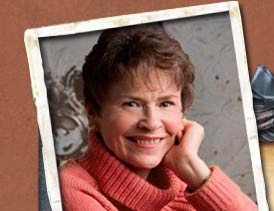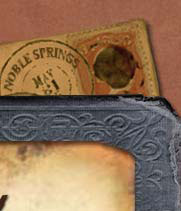_428x600.jpg)
Today I'm welcoming Christina Berry to my blog. Her debut novel, The Familiar Stranger, was provided to me by the publisher for review purposes. Scroll down past this interview to my blog post of October 3 for my take on this story. (Hint: I loved it!)
Hi Christina! Thanks for stopping by. For starters, tell me about your novel.
The Familiar Stranger—formerly known as Undiscovered—is about a couple going through a really rough patch in their marriage. When an accident incapacitates the husband, their relationship must be redefined. Which would be a lot easier to do if BIG secrets from his past didn’t raise their ugly heads. Despite the upheaval, the choices they make involving forgiveness and trust might allow a new beginning. Or … they might not.
You can see the back cover copy and what other authors have said about The Familiar Stranger by going to http://christinaberry.net/books.aspx
Your story had me staying awake late to see what happened next. How did you come up with your plot?
In the summer of 2006, two stories appeared in the newspaper. One was a huge, national story; the other a smaller, local-interest item. I wondered what it might look like if those two stories conceived a child. Boom! I had the entire plot for The Familiar Stranger. It will be interesting to see if readers can figure out which stories inspired the book.
Your female protagonist’s willingness to forgive certainly inspired me. But I’ve heard some Christian writers argue that fiction is first and foremost entertainment, and decry “agenda-driven” stories. What’s your opinion?
I say we're all writing with an agenda, whether we recognize it or not. Maybe it's to show what a godly romance looks like, maybe to draw attention to child abuse, maybe to attempt to understand why people are capable of such evil, or ... With this book, I felt called to share what God has taught me about forgiveness. That is definitely my agenda, which correlates with my tagline: Live transparently—Forgive extravagantly.
However, if the story is not presented in a highly entertaining way the agenda will never be accomplished because the reader will toss the book down if she gets bored. The real skill—and I am by no means saying I'm setting the watermark with my writing—is to so thoroughly wrap the story around the agenda that it becomes unrecognizable to the reader. I'd love to hear other’s opinions in the comments.
Readers, you can post those comments at the end of this interview. As a bonus, you’ll be entered in the October 31 drawing for one of ten copies of The Familiar Stranger. Be sure to leave your e-mail address with your comment.
On the subject of forgiveness, what takeaway value do you hope readers receive after reading The Familiar Stranger?
The recent changes in my life—losing my husband, facing finding a “real” job, selling my home—have done nothing but solidify what I hope to be the theme of the book and my life: Live Transparently—Forgive Extravagantly. If reading The Familiar Stranger makes even one man or woman be more honest with his or her spouse or delve into trust issues in a healthy way, I’ll consider it a success. Maybe there’s a hurting heart that can find a new path to forgiveness because of the story.
How long does it normally take you to write a book?
I can comfortably write a 90,000-word novel in four months. Fifteen hundred words a day is a pretty doable pace for me, and I could up it if I had a contract to fulfill that necessitated faster writing. Having a month or so to set it aside before doing edits is a wonderful thing.
Mom and I can write a very clean draft of a full novel in about three months. In the future, I’d love to be putting out 2-3 book a year, a combination of solo and co-written.
90,000 words in four months! That boggles my mind. You mention your mother—have you written together?
My mother, Sherrie Ashcraft, and I began writing in the summer of ’99. We figured the accountability of having a co-writer would make us actually do what we’d always dreamed of but never put action to. It took a long road of learning how much we didn’t know, tons of re-writing, brooding over rejections, making connections, pitching at conferences, and directional prayer to make our writing salable.
In the summer of 2007, when Mom was busy caring for her dying mother-in-law, I got the itch of a new story idea. Undiscovered was written by February 2008, edited by June, won second place in the ACFW Genesis Contemporary category, and was renamed The Familiar Stranger and contracted by Moody Publishers in October.
One decade from naïve first scribbles to debut novel!
Do you have any advice for other writers?
~Read craft books (I have a list of my favorites on the sidebar of my blog http://www.authorchristinaberry.blogspot.com)
~Write consistently
~Join a critique group
~Attend writing conferences
~By open to criticism. One always has room to grow!
Anything else you’d like to add?
I encourage readers to sign up for my infrequent, humorous newsletter. Back issues are available at http://www.ashberrylane.net/update.aspx.
Thank you, Christina. Now tell us how readers can purchase your book.
Here are two links:
http://www.christianbook.com/familiar-stranger-christina-berry/9780802447319/pd/447319?netp_id=612553&event=ESRCN&item_code=WW&view=covers
http://www.amazon.com/Familiar-Stranger-Christina-Berry/dp/0802447317/ref=sr_1_1?ie=UTF8&s=books&qid=1239913987&sr=1-1
You can also have any bookstore order copies for you if they don’t have any in stock.
Readers, Christina’s giving away ten copies of her book this month. All you have to do is leave a comment at the end of this interview and your name will be entered in the drawing to be held on October 31.
Tomorrow (October 10) she will be visiting Lil Duncan at http://www.examiner.com/x-12639-Cleveland-Christian-Books-Examiner . Visit Lil’s blog to learn more about Christina and her novel.
Scroll down for my review.










_428x600.jpg)































